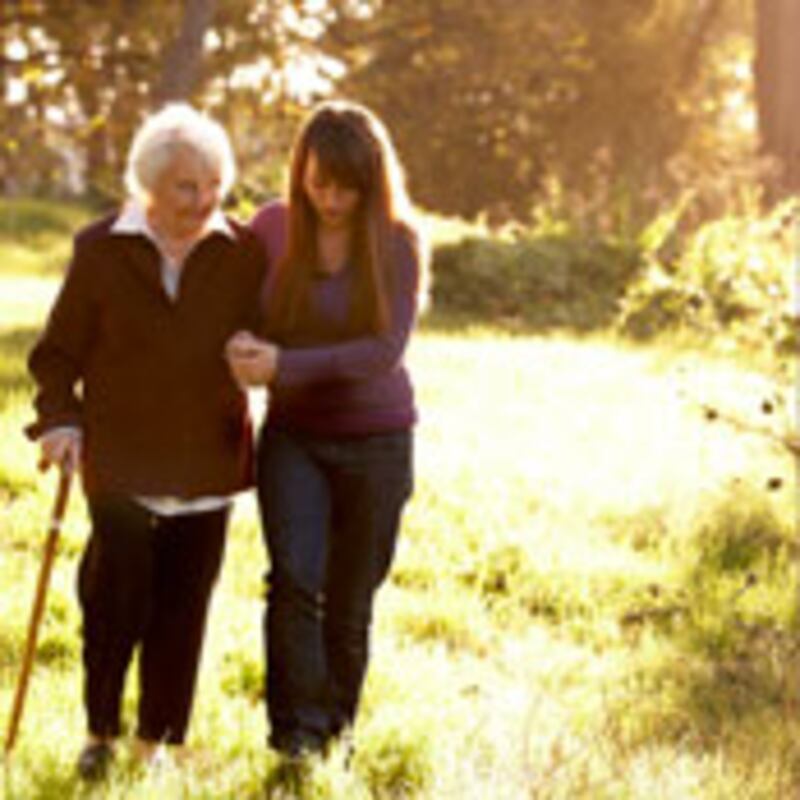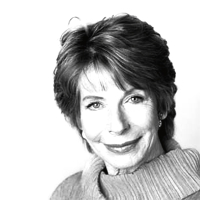
Let's say you're about to hit 50. Your children are out of the nest. Your parents are enjoying their golden years. Free at last! You have a whole Second Adulthood ahead of you. This is the time to find your Passion and pursue it.
Then you get The Call—The Call that changes everything. Your mom had a fall and broke her femur. Or your dad drove through a red light and had an accident, but he doesn't remember how it happened. Or your husband's doctor calls you with shocking news: "It's cancer."
When that call came to me, I froze. The shock plunges you into a whirlpool of fear, denial and feverish action. You search out doctors. They disagree on treatment. You scavenge the Internet. The treatment side effects freak you out. You call your brother or sister, hoping for help. Old rivalries flare up. You haunt the corridors of the hospital, always on duty to prevent mistakes.
It begins to dawn on you that your life is also radically changing. Why? You have a new role: family caregiver. It’s a role nobody applies for. You don't expect it. You won't be prepared. You probably won't even identify yourself as a caregiver. So many women tell me, "It's just what we do."
But family caregiving has become a predictable crisis. Americans are living longer and longer, but dying slower and slower. There are now nearly 50 million unpaid family caregivers taking care of adults who used to be independent. Half of the family caregivers also work full time.
Will you approach this role as an honor or a burden?
I walked this path for 17 years with my husband, Clay Felker. I was compelled to write about the experience and search out those caregivers who are most successful. I offer my own raw experience in my new book, Passages in Caregiving: Turning Chaos into Confidence. Our story offers a possible catharsis for those who are trying to do it alone.
In 2009 I served as AARP's Ambassador of Caregiving, With a producer and cameraman, I traveled the country for months interviewing hundreds of caregivers. The families we chose to film bring to life this difficult emotional journey.
You can see a few of these videos below, and more at my website. In them, I describe eight universal crisis points that caregivers go through, beginning with Shock and Mobilization. Below, watch the video of young Heather Hatlo-Porter, who was only 32 and a new mother when her husband was stricken with a mysterious auto-immune disease.
Once the immediate crisis is resolved, you enter The New Normal and begin to think, "OK, I can handle this." This reprieve may go on for months or years. But eventually, there is a third turning point— Boomerang. This time you are a little smarter about how to galvanize care. You need to call a family meeting because you cannot do this alone. Here, meet the Heath family and hear their powerful story of how to create a circle of care.
If you begin to think you are solely responsible for keeping your loved one alive and safe, you will eventually find yourself Playing God. This phase can develop into an unhealthy, codependent relationship. All that stress can lead to the next and most dangerous turning point is: " I Can't Do This Anymore!" Meet the Colbert family, where the oldest sister saved herself from burnout by finally mobilizing the men in the family to help.
A crucial turning point is Coming Back. You must appreciate all you have done and then begin to acknowledge that your loved one is not going to return to the independent person he or she once was. You are on a different path. You need to replenish your lifelines—friends, music, work, nature—whatever are your transports to joy.
Next, the In-Between Stage is a momentous turning point for those who care for the chronically ill. Your loved one cannot be cured in an acute-care hospital but is not ready for hospice. Our healthcare system has little to offer at this stage, except round-trips to the emergency room and readmissions to the hospital. I found a solution in palliative care—which is dedicated to minimizing pain and keeping the chronically ill out of the hospital.
See the video of Dr. Sean Morrison, a geriatrician at Mt. Sinai Hospital, who aligned treatment at home based on my husband's goals for this precious last stage of life.
The final turn is The Long Goodbye. This is a gift. You have time for end-of-life conversations. It may turn out that your passage into caregiving will be one of the most memorable journeys of your life.
Gail Sheehy is author of 15 bestselling books, including the revolutionary Passages . Her new book, Passages in Caregiving: Turning Chaos Into Confidence, will be published May 4 by HarperCollins.






